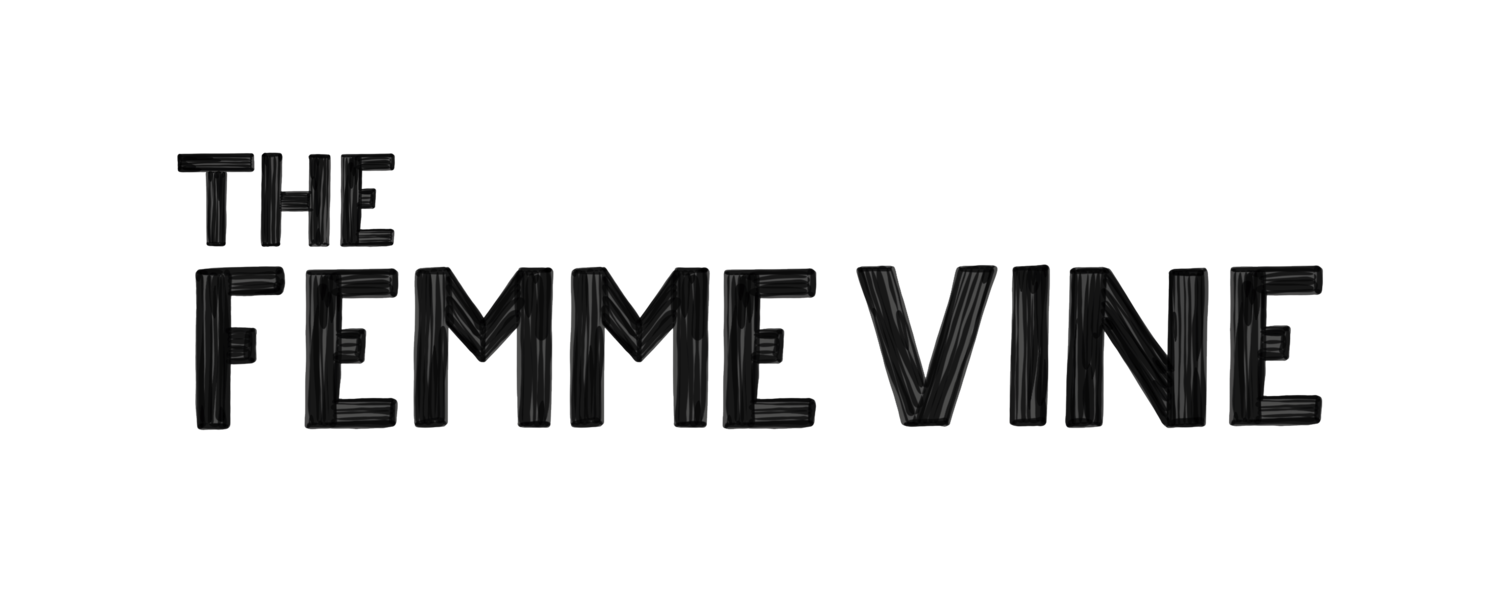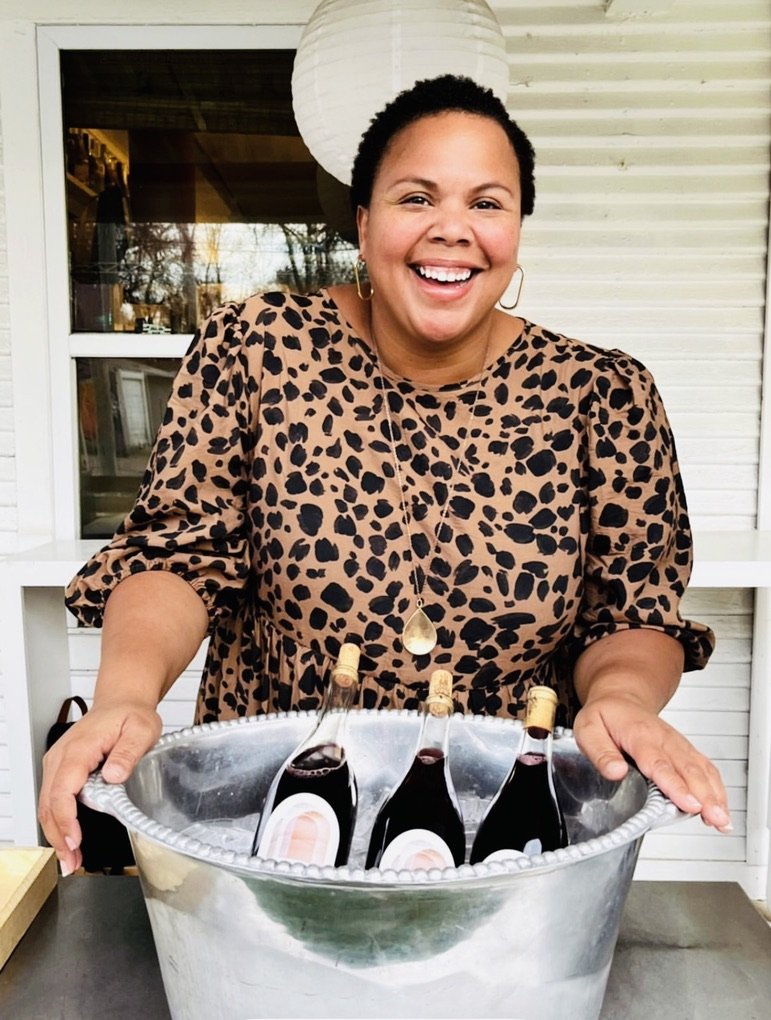Behind the vine
Chevonne Ball - Dirty Radish - Willamette Vally, Oregon, USA
Photography by Cheryl Juetten (above and below) & Veronica Meewes (right)
When do you think you fell in love with wine, enough to make a career of it?
I first got interested in wine while working at the restaurant Le Pigeon. I really loved the history and the stories behind our wines, and I loved the process of selling them to people based on those technical and personal points. I went from serving people a bottle of red wine with their meal to getting them to open up to other types of wine: selling half a glass of Muscadet with their oysters or a glass of wine with their dessert. I loved to watch people enjoy their wine throughout their meal. You'd give them something they'd never had before, and you watched this expansion in their mind. Then, I moved to Lyon, France and that sealed the deal.
My 'aha' moment with wine was 3 weeks after arriving in France. I was visiting producers, and this was the first time I was hanging out with the people whose wine I was pouring back in Portland at Le Pigeon. I asked one of the producers, Robert Perroud, what he paired his wines with, and he said: 'good people'. That was the moment I realized that wine is so much more than its technical history. At the end of the day, it's who you are with that makes the bottle.
What story does your wine tell?
I started my company, Dirty Radish, for a simple reason: I wanted to work for myself and spend more time in France. I had heard people talk about their experiences in France and express how they were so different from my own. They had very Parisian experiences versus the authentic experiences I had from becoming friends with the local people. I started with the idea of taking people to France on tours, and it continues to expand. We started tours in Willamette Valley, and I took my 20+ years of hospitality experience and moved it into a consulting business. I love talking to people about wine because I'm able to say I was just in a region, and I can talk about the producer and pour wines from people I saw a week before - that connection is priceless.
My wines truly came out of nowhere. I never thought I'd be a winemaker, but in 2020 Grant Coutler of Flaneur and Hundred Suns called me up and asked if I wanted a ton and half of Gamay he wasn't using. Then, literally, after I said yes to the Gamay, I got another call to make a Pinot Munier with Jason Lett of famed Eyrie Vineyards.
For my Gamay, I set out to make a fun, fruity, easy-to-drink Gamay, but then I made a cru-vibe Beaujolais, and I'm really excited about the Pinot Munier. I did 100% whole cluster for that wine, and I think it'll be pretty unique. When Jason asked me what I wanted to make, I was reminded of a Christmas I spent in a tiny village called Quenoche in the Jura with a French family. There was a fire in the fireplace and snow falling, and I wanted a wine that went with the experience - a rustic Pinot Munier.
“I love that wine makes every meal an occasion - it encompasses and brings all of these elements together: people, food, merriment.”
- Chevonne Ball
What misconceptions about wine do you think people should forget?
The greatest misconception is that you need a palate to understand wine. Many people think they can't remember or figure out what wine they like, yet, they know that they want their steak medium-rare or prefer 2% milk to whole milk. People can't make that link with wine because they think there is too much to understand.
I try to explain to people that there are simple ways to get to know your tastes. Make a checkmark next to the wine if you liked it and write down any of the things you liked about it - the flavors, the pairing, whatever it is. Then try to keep going back to that thing and figure out the path between what you liked and what wine gave it to you. People feel like there's so much more to understand, but it's really just about personal taste.
What great things about wine do you think people should remember?
On a large scale, I think there's an unfortunate disconnect between what we consume and understanding where it comes from and what values are behind it. Wine is an agricultural product, and people should remember that the labor associated with agriculture is also present in wine. It had to be grown, picked, and processed, and it's important to remember all the work that goes into it.
Another thing to remember is that there's nothing wrong with not liking a particular wine, and there's nothing wrong with enjoying something you think you shouldn’t. I buy wine for emotions and feelings, and activities.
What is a piece of advice you would give to a woman interested in breaking into the wine world?
Get some thick skin and be ready.
As in any industry, you'll never know it all, but follow your passion and don't do anything that doesn't feel good. There are so many jobs in wine that you don't have to be beholden to one thing just because you think that's the thing you're supposed to do. Do what feels good to you, and don't be afraid to try things. If you like being outside, work in the vineyard. If you like talking to people, work in sales. Move jobs, try new things, and if something doesn't feel good - do something different.
Who is a woman in wine you think everyone should know about?
There are so many dope-ass women making wine. The first one that comes to mind is Savannah Mills. She is the Assistant Winemaker for Brick House Vineyards (a biodynamic winery that started cultivating vines in 1990) and has her own wine: Quaintrelle Wines. She's an incredible blend of heart and brains. She lets her heart lead her way and has this extreme knowledge of the technical parts of winemaking. It's a beautiful, perfect blend. Learning from her over the years has been an incredible boon to my abilities in the wine industry. I love watching what she's been doing.
Where can women find your wine?
You can buy my Gamay on my website, and sign-up to my newsletter or follow me on Instagram for upcoming releases.



